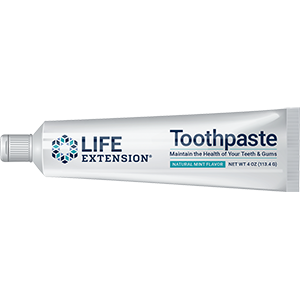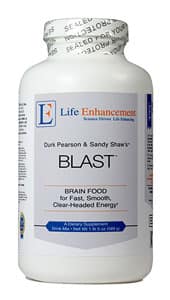 | July 27, 2010 | Blueberries protect against cardiovascular disease risk factors in metabolic syndrome patients | | An article published online on July 21, 2010 in the Journal of Nutrition describes the outcome of a trial of obese men and women with metabolic syndrome which found a protective effect for blueberries against several cardiovascular disease risk factors. Metabolic syndrome is a group of factors that include reduced high-density lipoprotein (HDL) cholesterol, high triglyceride levels, hypertension, impaired glucose tolerance, abdominal obesity, and greater oxidative stress and inflammation. Having several of these risk factors increases the risk of developing cardiovascular disease and diabetes. Researchers at Oklahoma State University randomized 4 men and 44 women to receive a beverage containing 50 grams freeze-dried blueberries (equivalent to 2.3 cups fresh blueberries) or an equivalent amount of water daily for 8 weeks. Weight, blood pressure, dietary assessments and blood sample analyses for various factors were conducted at the beginning of the study and at 4 and 8 weeks. At the treatment period's conclusion, those who received blueberries had greater decreases in systolic and diastolic blood pressure compared to the controls. This group also experienced significantly greater reductions in plasma oxidized low-density lipoprotein, serum malondialdehyde and serum hydroxynonenal concentrations, indicating reduced oxidative stress. The authors remark that blueberries have been shown to possess several cardioprotective mechanisms, including antioxidative, antiinflammatory, antihypertensive, antidiabetic, antiobesity and antihyperlipidemic effects. "Our study findings suggest a cardioprotective role of dietary achievable doses of blueberries in men and women with metabolic syndrome, which includes a significant decrease in systolic and diastolic blood pressures and plasma ox-LDL and lipid peroxidation," they write. "Our clinical data are supported by previously reported mechanistic studies and limited human intervention studies using single or mixed berries or anthocyanin extracts. However, our findings specifically show the cardioprotective effects of blueberries in improving features of metabolic syndrome." "These results warrant further investigation and provide some evidence for including blueberries as part of healthy dietary practices," they conclude. | |  |  | | It is crucial that diabetics (and those predisposed to diabetes) understand the ways in which blood glucose causes damage and take active steps to interrupt these processes. The most notorious process is glycation, the same process that causes food to brown in an oven. Glycation (defined as sugar molecules reacting with proteins to produce nonfunctional structures in the body) is a key feature of diabetes-related complications because it compromises proteins throughout the body and is linked to nerve damage, heart attack, and blindness. Oxidative stress is also central to the damage caused by diabetes. Diabetics suffer from high levels of free radicals that damage arteries throughout the body, from the eyes to the heart. Once again, it is important that diabetics understand their need for antioxidant therapy to help reduce oxidative stress and lower the risk of diabetic complications. Risk factors for type 2 diabetes include aging, obesity, family history, physical inactivity, ethnicity, and impaired glucose metabolism. Type 2 diabetes is also a prominent risk of metabolic syndrome, a constellation of conditions that includes insulin resistance along with hypertension, lipid disorders, and overweight. The high-carbohydrate, high-plant-fiber (HCF) diet popularized by James Anderson, MD, has substantial support and validation in the scientific literature as the diet of choice in the treatment of diabetes (Anderson JW et al 2004; Hodge AM et al 2004). The HCF diet is high in cereal grains, legumes, and root vegetables and restricts simple sugar and fat intake. The caloric intake consists of 50 to 55 percent complex carbohydrates, 12 to 16 percent protein, and less than 30 percent fat, mostly unsaturated. The total fiber content is between 25 and 50 g daily. The HCF diet produces many positive metabolic effects, including the following: lowered postmeal hyperglycemia and delayed hypoglycemia; increased tissue sensitivity to insulin; reduced low-density lipoprotein (LDL) cholesterol and triglyceride levels and increased high-density lipoprotein (HDL) cholesterol levels; and progressive weight loss. Studies of diabetic rats show that bilberry decreases vascular permeability (Cohen-Boulakia F et al 2000). Studies of diabetic mice receiving an herbal extract containing bilberry demonstrated significantly decreased blood glucose levels (Petlevski R et al 2001; Petlevski R et al 2003). | 
Join us in Los Angeles for the Prostate Cancer Conference. The 1 ½ day conference features an impressive line-up of clinicians and researchers who will tackle subjects ranging from diet and nutrition, sexual health, erectile dysfunction, active surveillance, hormone treatments, radiation, chemotherapy and much more! Presentations on: - Chemotherapy
- Hormone blockade
- Active surveillance
- Diet and nutrition
- Erectile dysfunction
- Radiation therapy
- The current state of immunotherapy
- 2010: What works and what’s worthless
- Round-table discussions: watch and hear speakers’ multidisciplinary approach to actual clinical cases
- Opportunities to interact with speakers after their presentations
To register, visit
http://www.prostate-cancer.org/pcricms/node/376
https://www.lifeextension.com/event | |  | Life Extension Toothpaste   | Scientific evidence links poor oral health with inflammatory and oxidative stress throughout the body, particularly concerning arterial health and immune function. Fortunately, studies show that regular brushing, flossing, and rinsing with a mouthwash help promote good oral health. Life Extension® Toothpaste is fluoride-free and contains innovative ingredients for effective oral care: - Coenzyme Q10 — a powerful antioxidant, effective in promoting healthy teeth and gums
- Green Tea — an herbal antioxidant containing catechins
- Hydrogen Peroxide — cleanses teeth and gums
- Aloe vera — facilitates natural healing
- Xylitol — a natural sweetener that won’t decay teeth
- Folic Acid — for healthier and more resilient gums
- Lactoferrin — supports healthy oral hygiene
- Squalane — antioxidant derived from shark liver oil
| | | Durk Pearson & Sandy Shaw's Blast™   | | When we drink coffee or other quick-release caffeine beverages, there is a surge of noradrenaline release in the brain that gives us a burst of energy. The problem is that this sudden release of noradrenaline depletes its precursor, L-phenylalanine, thereby causing the caffeine “letdown” effect so many people experience later in the day. By taking L-phenylalanine and other noradrenaline factors with caffeine, many people are able to achieve sustained energy levels throughout the day. The reason is that the L-phenylalanine induces more noradrenaline to be produced in the brain. L-phenylalanine is also converted in the brain to dopamine, a neurotransmitter involved in memory and reward circuitry, and beta-phenethylamine, a neuromodulator that increases the activating effects of noradrenaline. The L-form of phenylalanine can be converted in the body to another amino acid—tyrosine. Tyrosine, in turn, can be converted into one of several neurotransmitter molecules (L-dopa, norepinephrine, and epinephrine), each of which have important functions in brain metabolism. | | | |  | Life Extension Update | What's Hot | Life Extension Magazine® | |
















